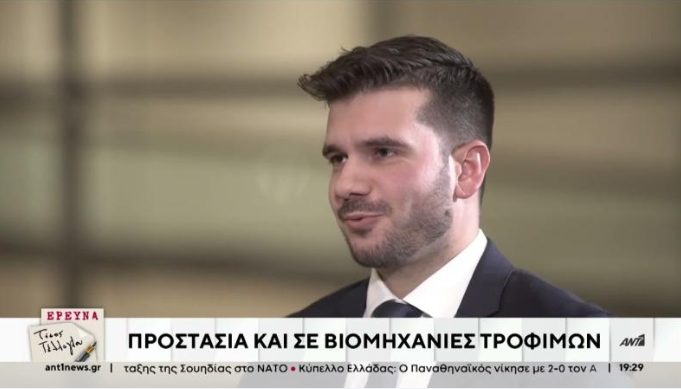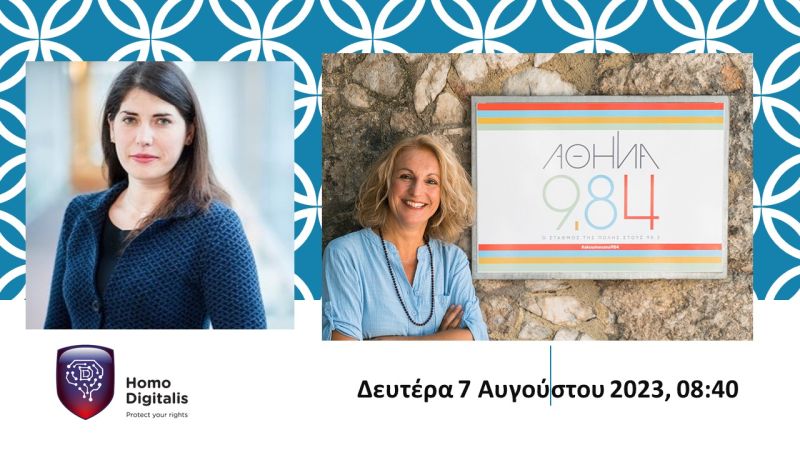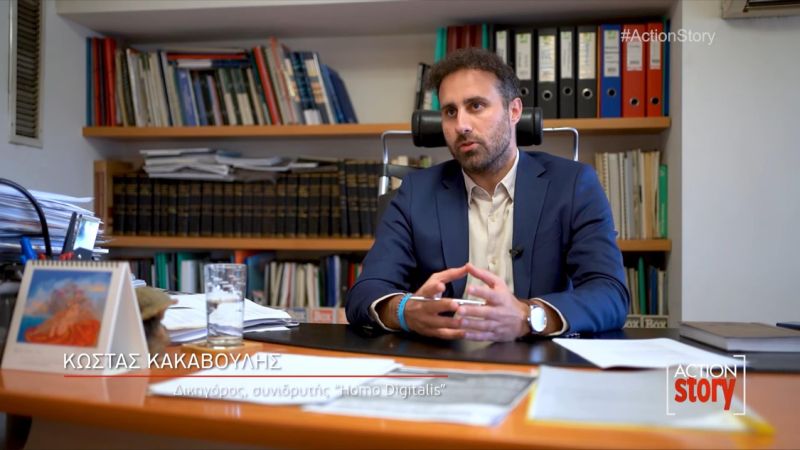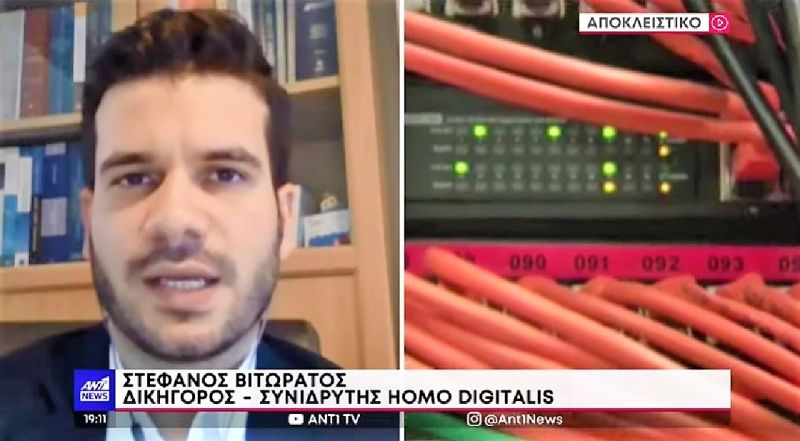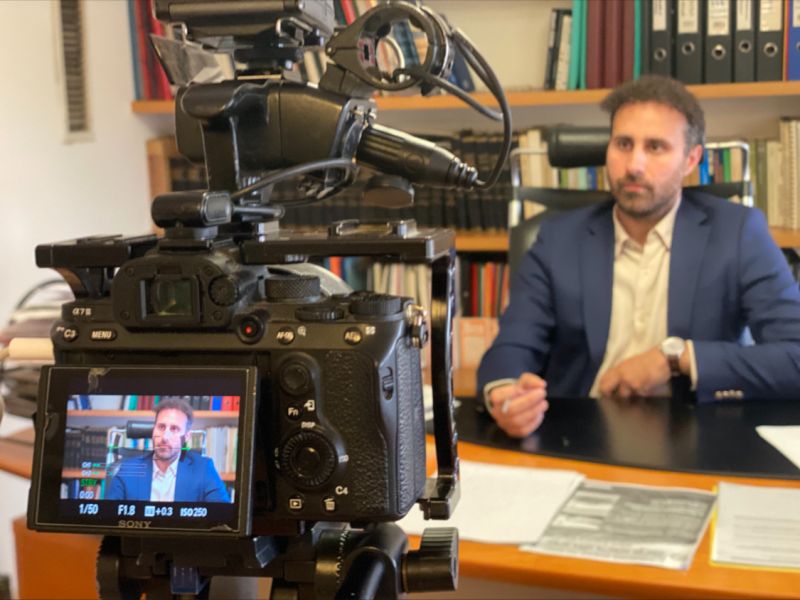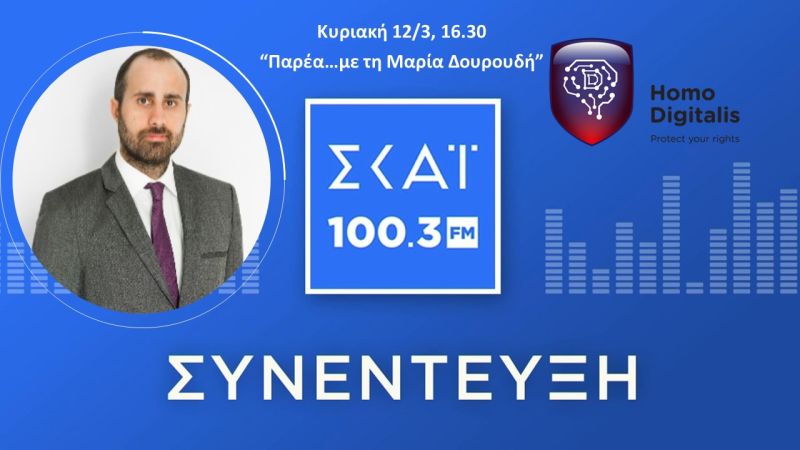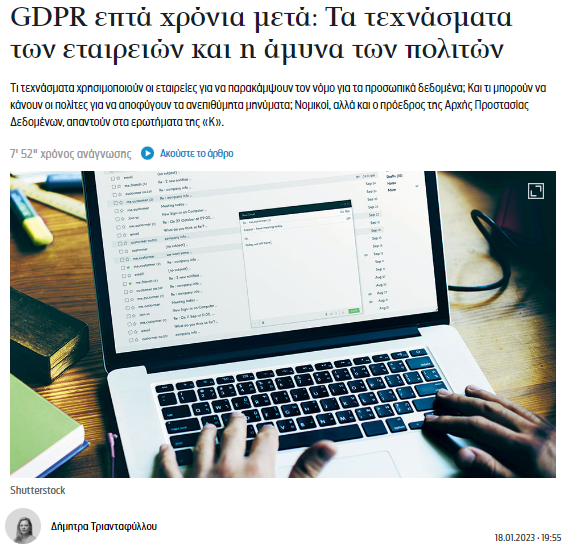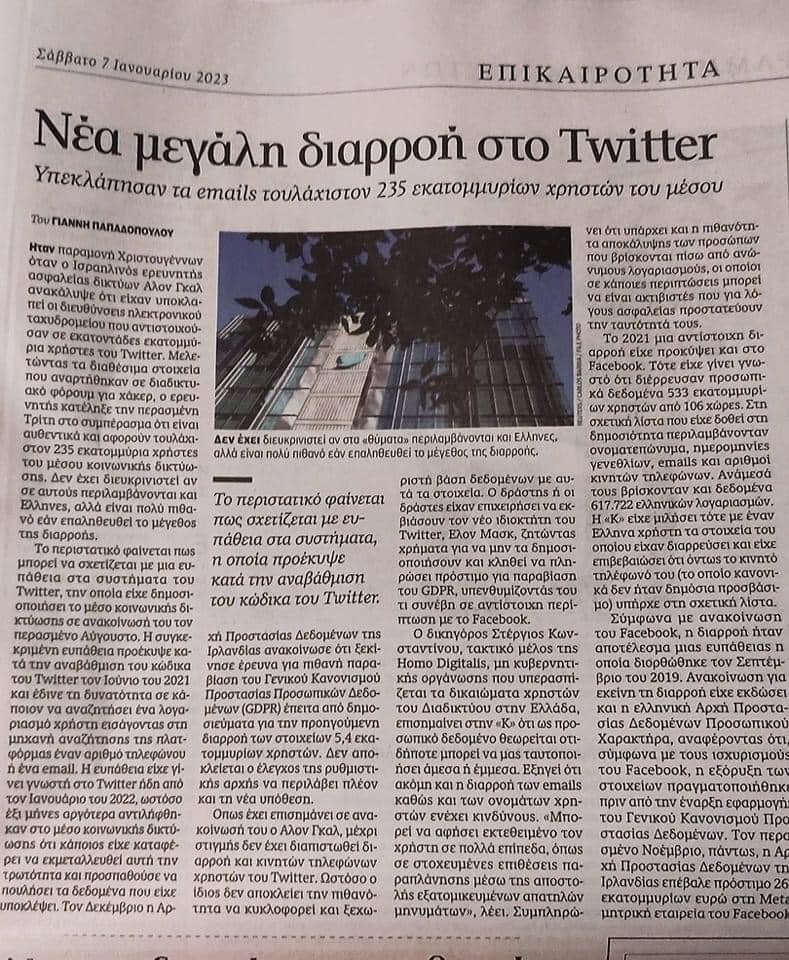Homo Digitalis talks to Ant1 and Tasos Teloglou about the National Cybersecurity Authority and NIS2
Stefanos Vitoratos and the Minister of Digital Governance Dimitris Papastergiou spoke to Tasos Telloglou for his report on ANT1’s Central News on NIS2 and the National Cybersecurity Authority.
The report highlights some elements of the new framework, as well as what is required for the new Authority to be successful in its work. It is important for our country to have a strong National Cybersecurity Authority, properly staffed to meet the ever-increasing challenges.
Homo Digitalis is always available to work with the Authority both in terms of awareness raising and in other areas of its expertise.
You can view the relevant extract here.
Homo Digitalis talks to Athens 9.84
Margarita Mytilineou is one of the most acclaimed radio producers of the last decades.
Tomorrow morning, she welcomes Lambrini Gyftokosta, Director of Artificial Intelligence & Human Rights at Homo Digitalis, for a discussion on the topic “Can our mobile phone finally listen to us?”
Tune in to learn more about the ads we see every day everywhere on the Internet.
-Why are they different for each of us?
-How much does it affect us?
-How much is it legal?
Homo Digitalis talks to Inside.Story about the microphone of our mobile phone
Can the mobile phone finally hear us?
Many people believe that the mobile phone microphone is recording us without our knowledge, for advertising purposes. So is this a conspiracy theory or reality?
To inside story. and journalist Rafaela Maneli today published an article analyzing the relevant issues, with the participation of Homo Digitalis’ Director for Artificial Intelligence and Human Rights issues, Lamprini Gyftokosta, in it. You can read the article here.
Thank you very much for the interview and the interest in our actions!
Action24's documentary on Artificial Intelligence in which Homo Digitalis participates has been published
What are the challenges of using AI applications?
Why is a clear legal framework regulating AI necessary?
What does the draft EU Regulation provide for?
The answers in Action24’s documentary #ActionStory, in which Konstantinos Kakavoulis participated representing Homo Digitalis.
You can watch it in full here.
We spoke on Ant1's Main Newscast
Stefanos Vitoratos, representing Homo Digitalis, participated in a report for the main newscast of ANT1 regarding the recent DDoS attack against the Subject Bank of the Institute of Educational Policy.
“Cyber attacks should be considered part of everyday life as we invest in the digital transformation of the state. This attack was simply a wake-up call on the need to protect critical infrastructure,” the release said, among other things.
You can view the relevant excerpt here. We thank ANT1 for including and reporting on our actions.
We talked about Artificial Intelligence in Action24's ActionStory documentary
What are the challenges of using AI applications?
Why is a clear legal framework regulating AI necessary?
What does the draft EU Regulation provide for?
These and many more questions were answered by Konstantinos Kakavoulis for Action24’s #ActionStory documentary representing Homo Digitalis.
Soon on our screens!
Interview on SKAI 101.3
Tomorrow, Sunday, at 16.30, tune in to SKAI 100.3.
Konstantinos Kakavoulis will talk with Maria Douroudi about digital rights and how to protect them.
We talk to the newspaper Kathimerini about the implementation of GDPR
Do you often receive unwanted messages?
How legal is this practice?
What rights do we have?
Read more in the statements made by Kostas Kakavoulis on Homo Digitalis to Kathimerini newspaper and journalist Dimitra Triantafyllou here.
We spoke to the newspaper Kathimerini about the leak of emails on Twitter
Today in KATHIMERINI – Official Page we host statements by Stergios Konstantinou, member of Homo Digitalis, about the leak of e-mails of more than 235 million Twitter users.
-What consequences can the leak have for users?
-Read the full article here.
Thanks to journalist Ioannis Papadopoulos for reporting.
